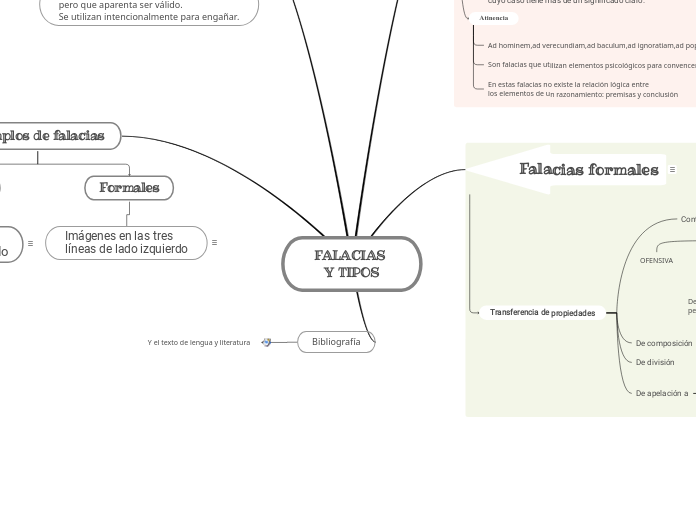by Ana CazarillaMarin 4 years ago
443
FALACIAS Y TIPOS

by Ana CazarillaMarin 4 years ago
443

More like this
Why is it important to plan your year ahead?
Planning ahead for the next year has some highly important benefits: it contributes to your personal and business growth; it helps you set priorities and focus on them; you get to prevent all sorts of risks and get accustomed to change.
Ejemplos de FALACIAS FORMALES
Ejemplos FALACIAS NO FORMALES
A goal refers to an expected outcome that has one or several specific objectives which have to be achieved within a designated time frame. Regarding the time frame, goals can either be long-term goals, or short-term goals. These two basic categories can be further sub-divided:
solving, innovation, or some type of improvement;
Remember that goals should relate to accomplishments (therefore the result), not activities.
S.M.A.R.T. is an acronym and it stands for:
quality, cost, etc.
Review your past year
to see what you achieved and what areas you still want to improve. Do you have any regrets?
De autoridad colectiva (ad populum)
De autoridad individual (ad veecundiam)
What were last year's mistakes?
Are there any challenges that you didn't manage to cope with? Is there anything you regret doing/not doing in the past year?
CIRCUNSTANCIAL
Auto contradicción
De intereses personales
OFENSIVA
What do you have in mind for the following year?
Taking into consideration the year that has just passed, it's time to make new, bigger, bolder plans. Will you change the city/country you are living in? Are there any new skills you are planning to acquire? Are you taking a new career step?
Choose several areas in which you are prepared to make a huge difference this year. Consider taking just a few, maybe just 2 or 3 areas. Having too may areas to focus on would imply a waste of your energy. List them and choose icons to set their priority levels: